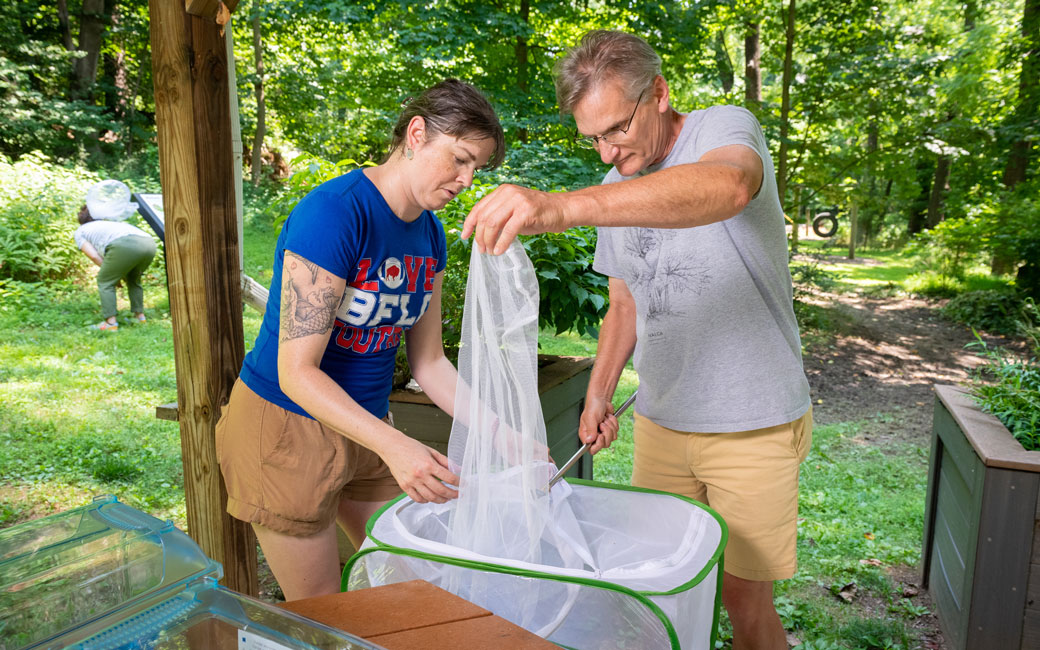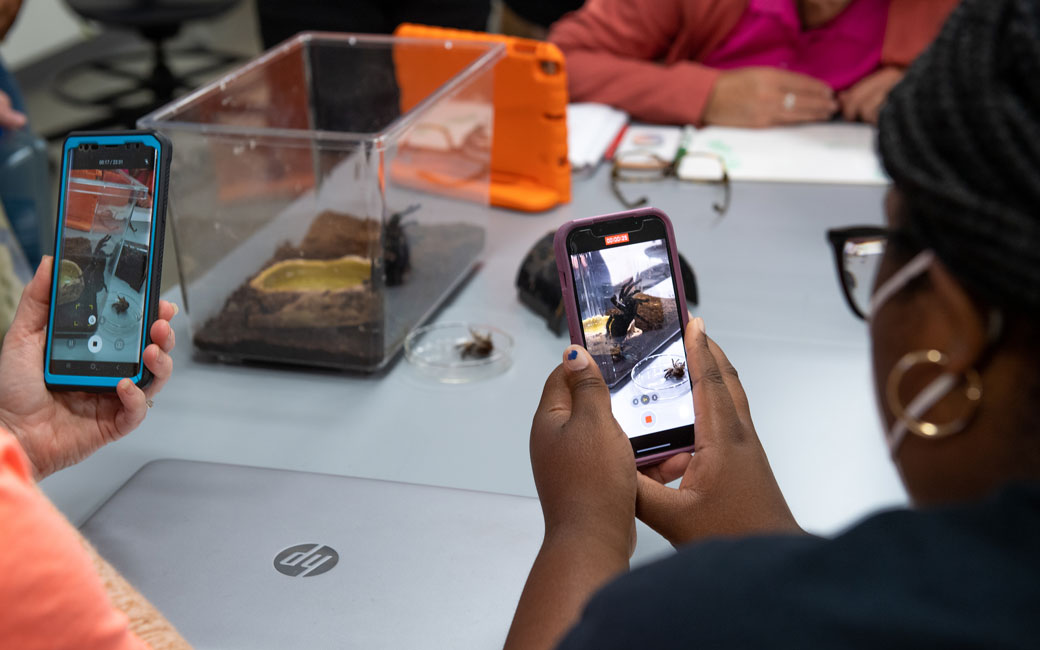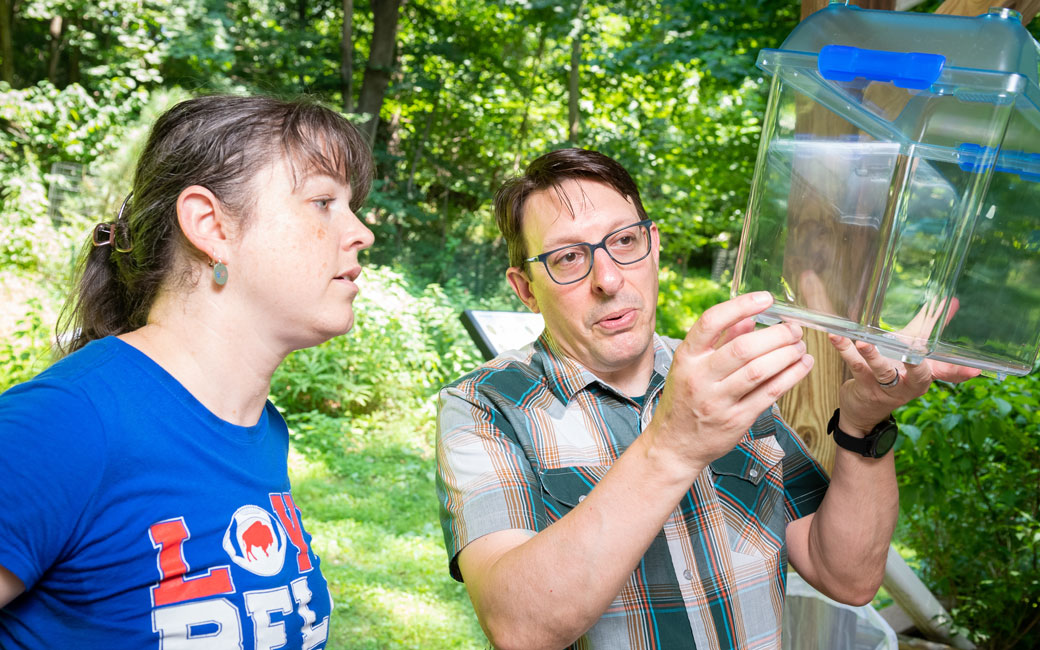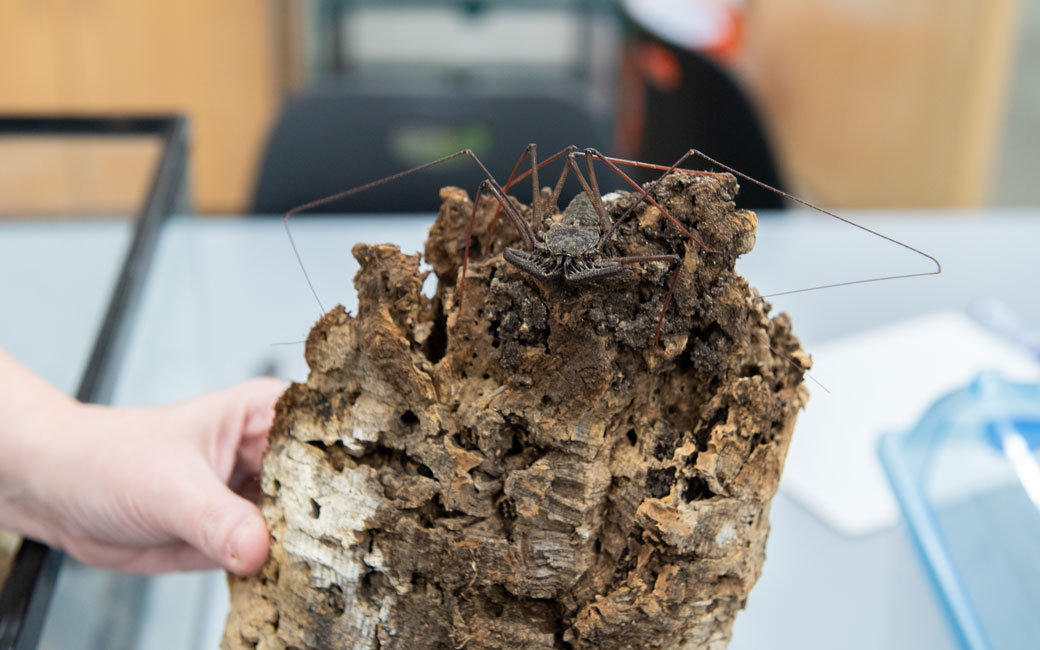TU helps Maryland teachers bug their students
In two TU-sponsored workshops, biology faculty help local educators bring insect studies to classrooms
By Kyle Hobstetter on July 31, 2022

Towson University is full of bugs.
But instead of calling an exterminator, TU’s Department of Biological Services and the Center for STEM Excellence are bringing in Maryland K-12 teachers to learn how to integrate studying insects into their lesson plans.
This summer, Towson University hosted two in-person professional development workshops that had participants perform research with TU professors inside the state-of-the-art Science Complex.
Mary Stapleton, director of the Center for STEM Excellence, and Laura Gough, chair of the Department of Biological Sciences, developed the workshops—the latest offerings in TU’s slate of high-quality professional development opportunities for in-service teachers.
Younger children, tiny bugs

The first workshop—Insect Investigations—showed elementary school teachers how they can use live insects in their classroom. The workshop was facilitated by Stapleton, who partnered with Faith Weeks, a professor of entomology and science education at TU.
One of the workshop’s key goals was to give teachers experience in engaging students in science and engineering practices that are part of the new Next Generation Science Standard (NGSS), a multi-state effort that determined science information all K–12 students should know.
During the workshop—supported by a grant from Wells Fargo—Maryland educators worked in a collaborative, hands-on, learner-centered environment.
“This is critical because a lot of teachers, particularly elementary teachers, have never really had an opportunity to engage in authentic science, and yet they’re expected to teach their students how to do that,” Stapleton says.
“Some [participants] already teach with insects and want to take it to the next level. But some of them come in and they're like, ‘I'm not really comfortable with this, but I'm going to give it a try’ because they think, “My students would love it.’
As homework, participants are challenged to develop and implement a science lesson featuring live insects and then report on the implementation during a fall follow-up meeting. All participants will be provided with a “starter” kit: live insects and materials needed to keep them alive in the classroom.
iSTAR meets invertebrates

The Inclusive Science Teaching & Authentic Research (iSTAR) Professional Learning Workshop for Maryland Teachers was facilitated by Kara Berger, education and outreach specialist in the Center for STEM Excellence, and Christopher Oufiero, an assistant professor of biology. The idea for the workshop came from TU receiving grants from the Howard Hughes Medical Institute (HHMI) in YEAR.
Based on Oufiero’s course-based undergraduate research experience (CURE), the high school teachers studied organismal form, function and performance by collecting invertebrates from the Glen Arboretum and using high-speed cameras to analyze their movements.
Oufiero’s research was ideal for the workshop since the cost of required materials fits most schools’ budgets.
“When I taught my class in fall 2020, it was hybrid and mostly online, so students were doing this at home using their phones,” Oufiero says. “You don’t need expensive equipment, and the software used to track animals is free. There is potential that high school teachers could do something like this in their classrooms without many resources.”
Along with six in-lab sessions over the summer, the teachers will take what they learned at TU and integrate it into a lesson plan this fall.
“Some of the feedback we received is the teachers feel more comfortable and ready to engage their students in authentic research,” Berger says. “Going through this has helped them think about what it would be like in their classrooms.”
The high school teachers also got a chance to reflect on their own inclusive teaching practices.
“We want to get more students engaged in research, and, by developing these types of classes, we can do that,” Oufiero says. “That’s the goal: to let more students have these research experiences in a classroom setting.”
